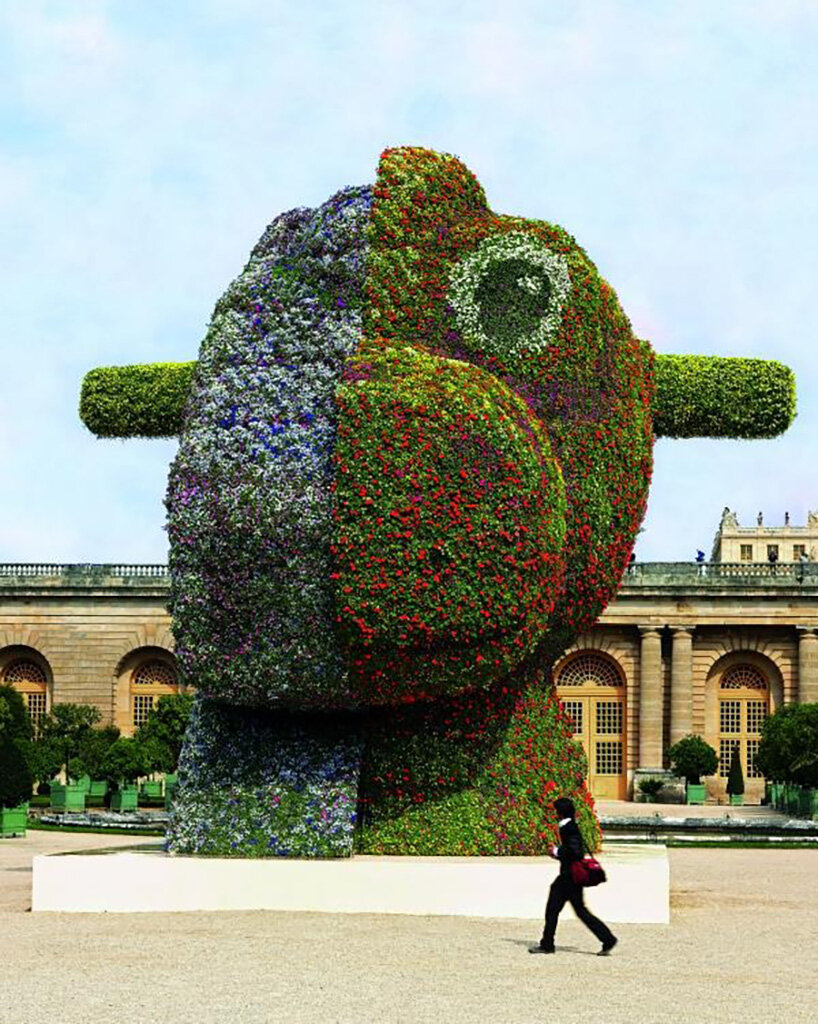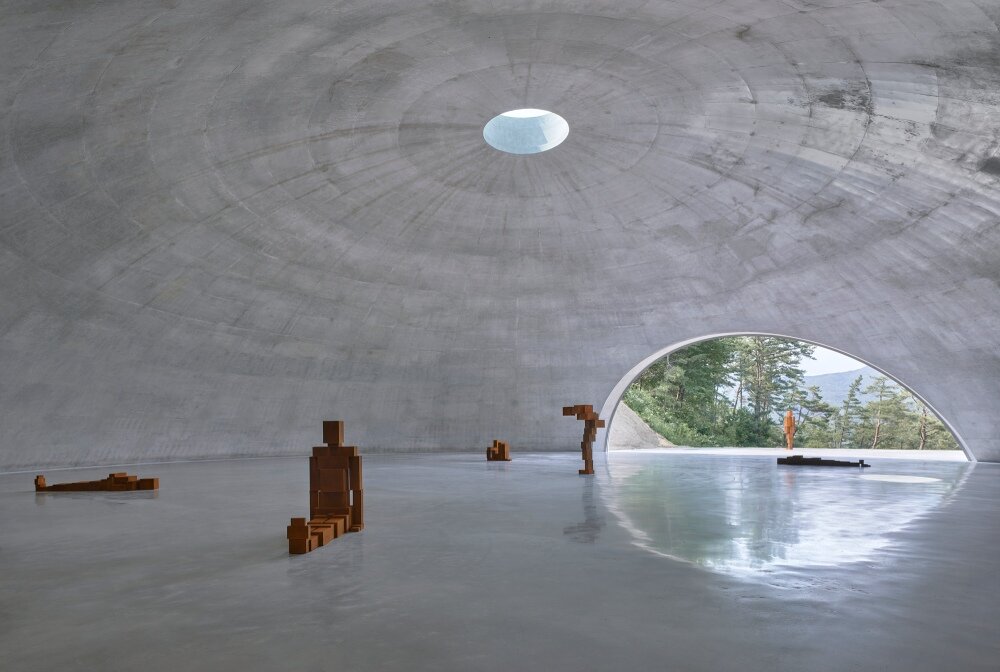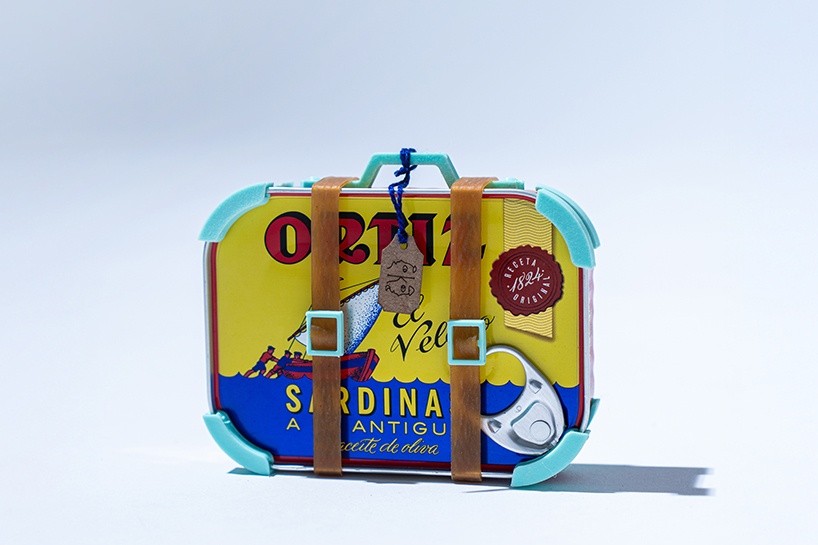Historical and Architectural Echoes at art basel 2025
Roméo Mivekannin’s Atlas, an installation of suspended metal sculptures, is on view during Art Basel 2025 as part of the Unlimited sector. Presented by Galerie Barbara Thumm in collaboration with Galerie Cécile Fakhoury, this exhibition of eight steel sculptures explores powerful themes of history, architecture, and cultural memory. Mivekannin’s choice of material, hand-welded steel, forms intricate, cage-like structures that provoke thought and invite reflection on the legacies of colonialism and cultural representation.
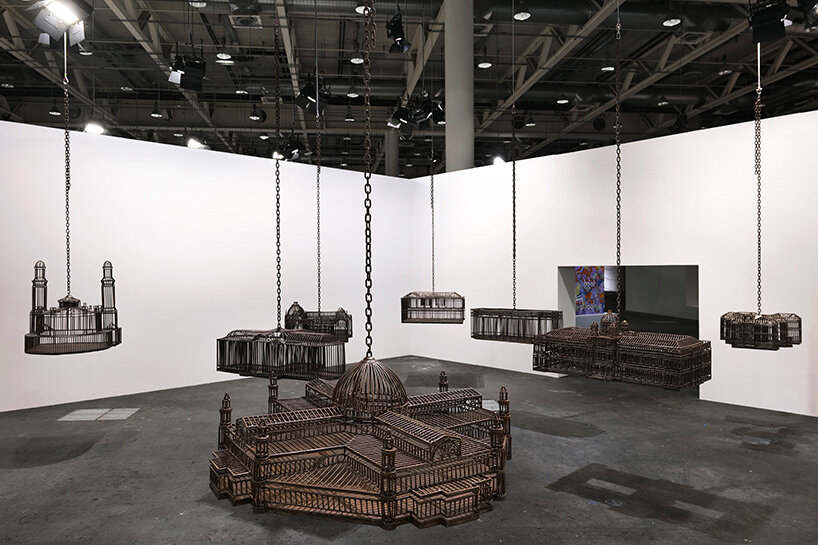
images © Galerie Barbara Thumm
Roméo Mivekannin Reverses Colonial Narratives
At first glance, the sculptures of Roméo Mivekannin’s Atlas evoke birdcages, a powerful symbol of entrapment, restriction, and loss of freedom at Art Basel 2025. These small-scale architectural forms are subtle replicas of buildings associated with the histories of colonization and ethnographic exhibitions, such as the Grand Palais in Paris and the Royal Museum for Central Africa in Tervuren, Brussels.
The sculptures represent museums that once housed ethnographic collections, and their design alludes to the structures where human zoos were historically staged. The artist‘s cages, raw and unadorned, stand in stark contrast to the opulence and grandeur these buildings project today, offering a visual counterpoint to the power dynamics they once represented.

Roméo Mivekannin’s Atlas is an exhibition of suspended metal sculptures on view at Art Basel 2025
‘atlas’ celebrates Craft and Global Connections
Roméo Mivekannin’s work is a deliberate deconstruction of the historical narratives often perpetuated by these monumental structures. By exposing the forged iron skeletons of iconic buildings, Atlas challenges the symbols of power and luxury that have transformed these sites into tourist destinations. The use of steel — a material rich in symbolism and often associated with industrial domination — heightens the work’s commentary on the exploitation embedded in architectural history. It is in the rawness of these forms that Mivekannin invites the viewer to reconsider the complex relationship between architecture, power, and cultural identity.
The hand-welding of these cages in Côte d’Ivoire further deepens the installation’s resonance. Mivekannin’s emphasis on local craftsmanship counters the often-overlooked artistry of indigenous traditions in a globalized world. By grounding the sculptures in the hands of African artisans, he only honors these practices and subverts dominant global narratives that have marginalized such craftsmanship.

the installation consists of eight steel sculptures resembling birdcages, symbolizing museums with ethnographic collections

the cages evoke the historical contexts of colonization and ‘human zoos’

Mivekannin’s use of raw, unadorned steel contrasts with the opulence of iconic colonial-era buildings
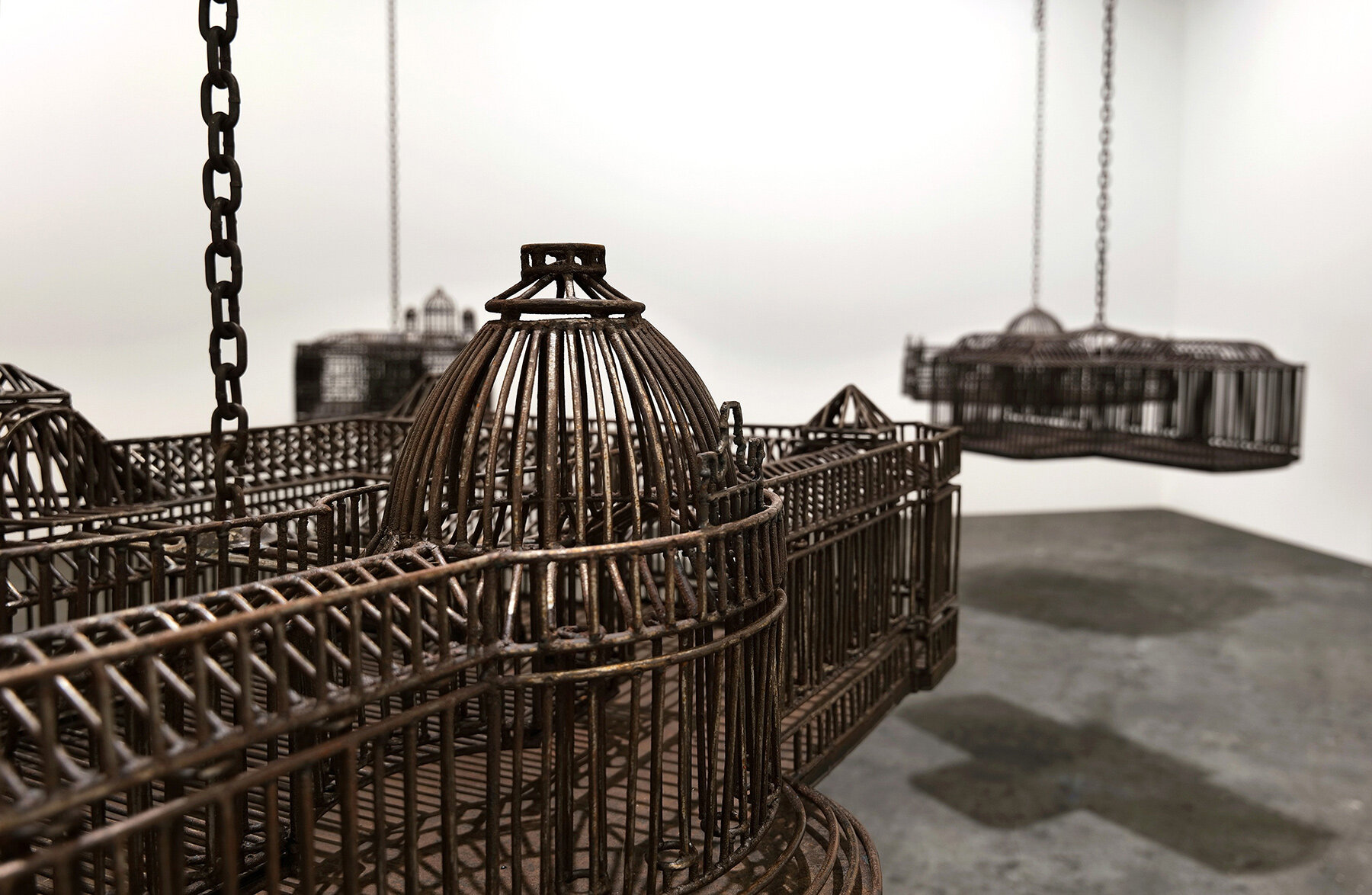
the sculptures expose the forged iron skeletons of structures like the Grand Palais and the Crystal Palace

Atlas challenges the symbolic luxury and power associated with these historic landmarks
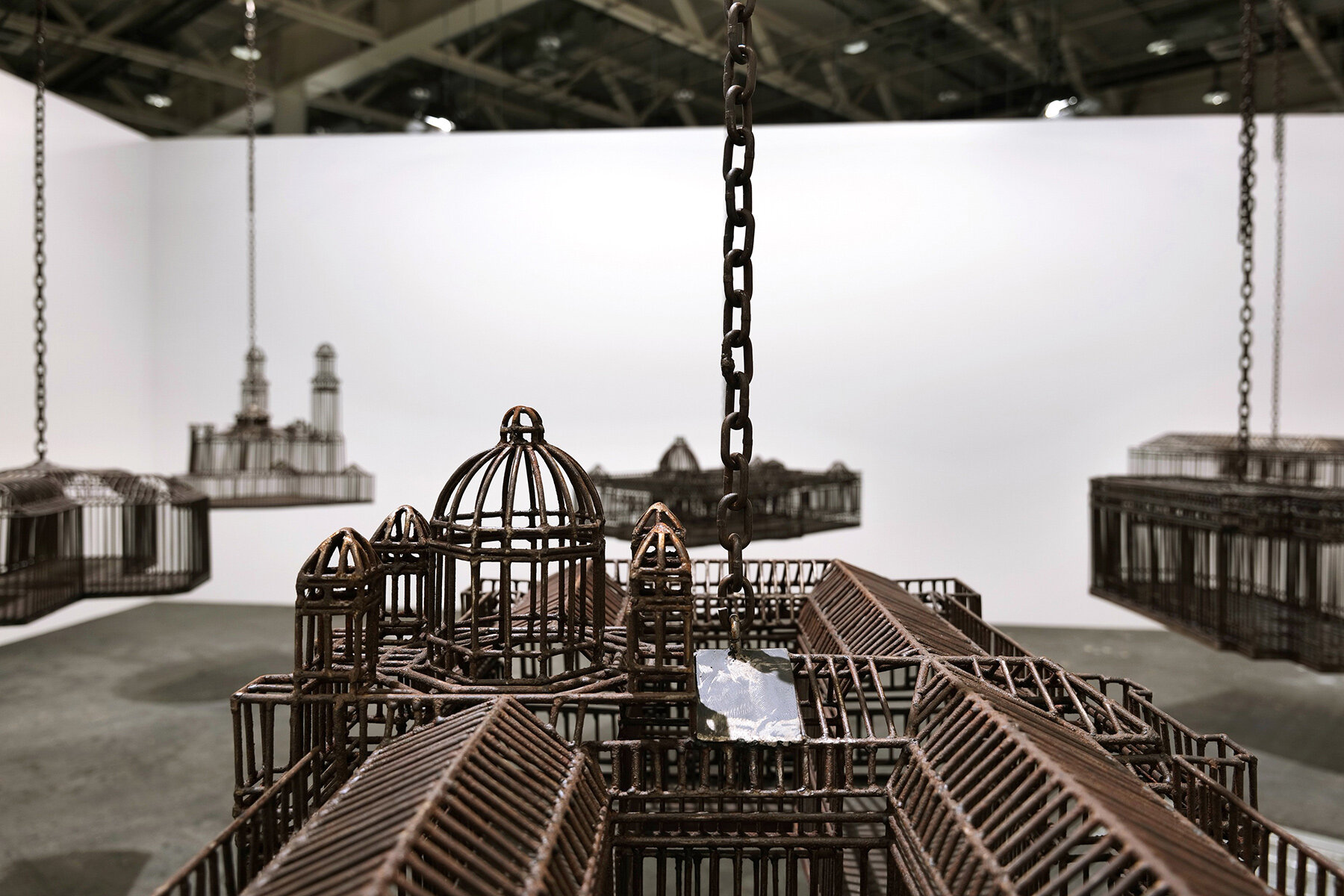
the cages are hand-welded in Côte d’Ivoire, emphasizing the importance of local African craftsmanship
project info:
name: Atlas
artist: Roméo Mivekannin | @romeomivekannin
gallery: Galerie Barbara Thumm | @galerie_barbara_thumm
event: Basel Art Week 2025
on view: June 16th — 22nd, 2025
photography: © Galerie Barbara Thumm
The post roméo mivekannin reinterprets colonial architecture with hand-welded sculptures at art basel appeared first on designboom | architecture & design magazine.
